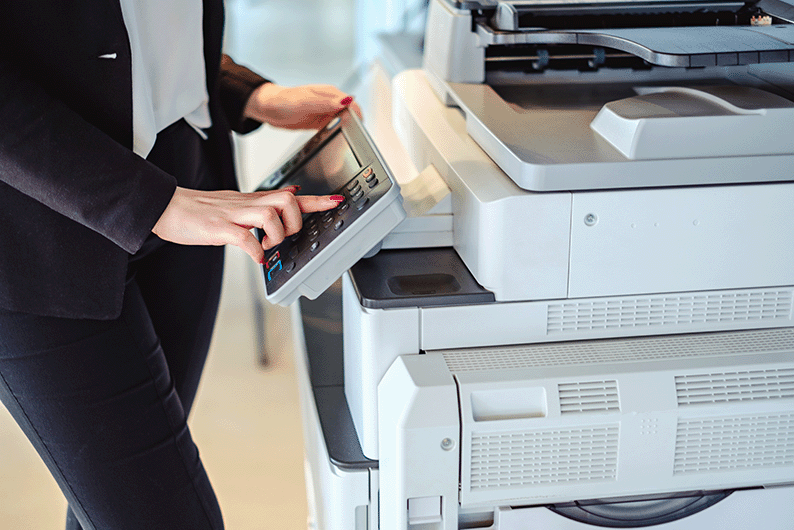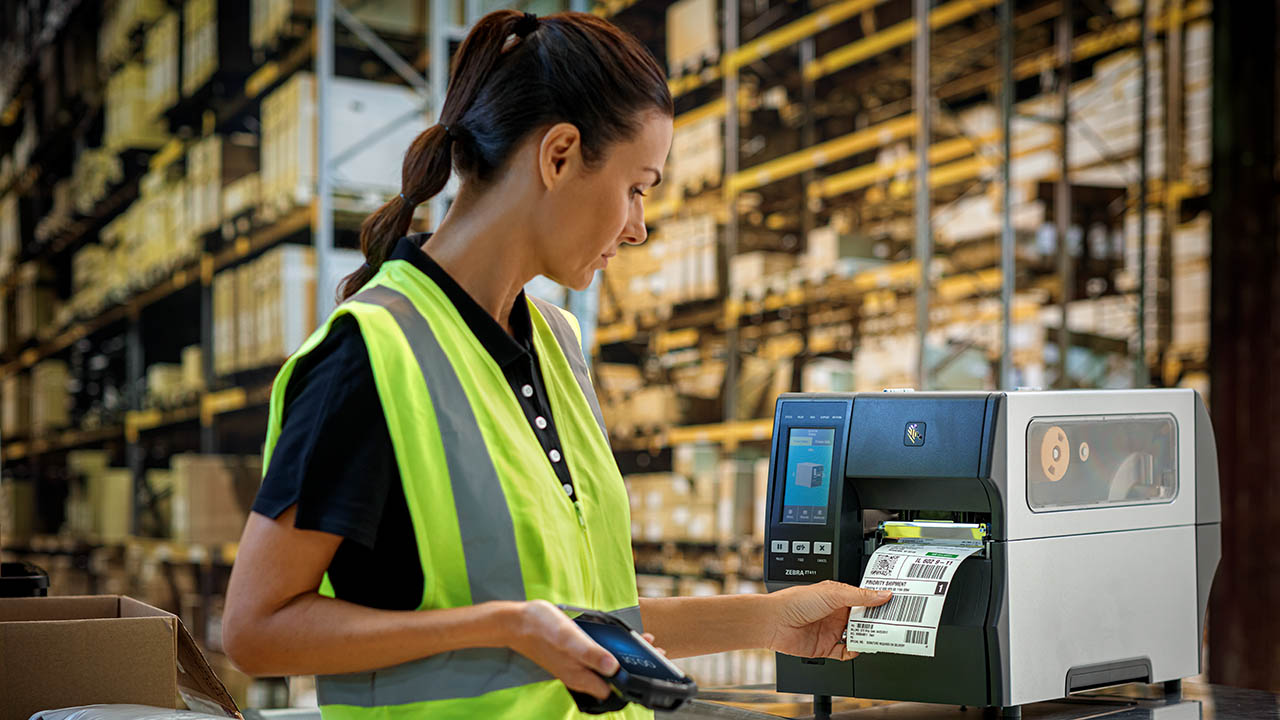
COPIER COST | 10 MIN READ
As the person responsible for the office technology decisions in your office, you do your research to ensure that you’re making the best decision for your organization. When it comes to copiers, this means you’re evaluating the needs of your firm, and determining what is a necessity and what is nice to have on your next multifunction copier. As you search different copier dealers, you realize that it’s difficult to find the answer to how much a copier costs.
At FTG Texas, we make great efforts to educate our customers so that they can make the best buying decision, and with decades of experience in the copier and printer industry, being a source of trust is most important to us.
So, why do copier dealers and manufacturers avoid explaining hardware and service pricing to potential customers? After all, isn’t it best for a customer to know if they can afford specific machines or services before entering into a conversation with a dealer?
In the spirit of being transparent and helping our customers as much as possible, we wrote this article about copier costs to give you the best understanding of pricing. Not just how much everything is, but also how we get to that pricing. Our hope is that when you finish reading, you will be informed enough to make a quality buying decision, whether you choose to work with us or not.
Not a lot of time? Skip to what you need:
Copier Dealer vs Manufacturers
Understanding Copier Service Pricing
Pricing Breakdown for Copiers and Service
A Word About Service and Contracts
Copier Dealers vs Manufacturers
It would be reasonable to assume that copier dealers are the middleman in the copier industry. The phrase “cut out the middleman” to save money may also be going through your head, and in some cases, you would be right to do so.
There are several myths surrounding copier dealers and manufacturers that should be mentioned before moving forward. I briefly discuss them below, but if you would like to read a more in-depth article, you can.
RELATED: Copier Dealer vs Manufacturers: 3 Myths Busted
Misconception: Manufacturers can offer cheaper products. Manufacturers make their money selling their products at a premium so that they can maintain strong stock prices. It’s often that local dealers can match or beat the price of a manufacturer for this very reason (because dealers make their money on service, not the hardware). Dealers also often enjoy the same promotions as the manufacturer.
Misconception: Manufacturers are bigger, understand their machines better, and therefore can offer me higher levels of support. This is another myth that seems logical. But no manufacturer is large enough to offer support in every state and every city, so they often operate using the same network of dealers that local dealers use to support customers with locations outside their immediate network.
Additionally, because local dealers are independent of shareholders, they can make decisions that benefit their customers, first. It isn’t unheard of for a manufacturer nearing the end of the month or quarter to be a little slow fixing a machine, because doing so would put them over their parts budget for the period.
Regarding the ability to service machines more efficiently, this is also a myth. For a local copier dealer to be permitted to sell the equipment of a manufacturer, their technicians must first be trained. Manufacturers use the same trainers and facilities to train the technicians of local dealers as they do their own, so the skillset is no different here.
Understanding Office Copier Pricing
Like any other piece of technology, copiers (or more accurately, multifunction printers) are constantly in development – becoming more efficient, more reliable, and printing at a higher quality with each iteration. You can make a similar comparison to a car.
A copier, like a car, is going to have several factors that determine its overall price:
Copier Make
An economy car brand and a luxury car brand are going to have two very different prices. Both may be reliable and functional in their own respects, but one will be loaded with features and new technologies, while the other may focus on reliability and efficiency only.
Copiers are the same. A Sharp copier is often purchased at a cheaper price than a Canon. That’s because Canon has a more established reputation in the market and can command a higher price. They are often considered to produce better prints and offer more reliability, but as I said before, each year, new copiers hit the market that close the quality gap.
Copier Model
Even if you choose a car/copier of the same make/brand, the model you choose will have the greatest impact on the overall price. For instance, a machine that produces 100,000 prints per month will cost much less than one that can handle 250,000 prints per month. If we compare copiers to a car, a hybrid car that can travel 500+ miles between fill ups is going to cost more than a traditional fuel-only car that can only travel 300 miles.
Similarly, a more robust engine that’s faster will cost you more. With copiers, this is the hardware that lives inside your machine and determines how quickly you can print. So, a copier that can print at 25 ppm (pages per minute) is going to be cheaper than one that prints at 65 ppm.
Copier Features
Features will change the overall price, generally, but also when comparing the same make and model. Upgrades, and items not included in the base model will cost more. Leather seats cost more than cloth in cars. Likewise, choosing add-ons like booklet finishers, stapling, or card access printing will raise the overall price of your machine.
New vs Used Copiers
There can be pricing advantages to buying used. A friend of mine purchased a “used” car that had fewer than 300 miles on it. That’s essentially a new car, but because it was purchased and driven off the lot, he saw an immediate savings of a few thousand dollars.
Similar deals may be available for used machines, but it’s important to understand the balance between new vs used.
Like a car, a used copier will require more frequent service than a new one. This means that your service contract will likely be at a higher rate, because the copier dealer is expecting it will need to provide greater maintenance for an older machine, costing them more.
Pricing Breakdown for Copiers and Service
Now that you better understand why copiers can vary in price so greatly, let’s get to the price ranges you can expect when purchasing a copier.
Hardware: $500-$50,000
Hardware is the machine itself, bare, and without optional add-ons/features. This determines your output speed (pages per minute based on copying and printing), base paper capacity, quality of prints, and monthly volume.
The price range indicated here represents our most basic desktop multifunction printer and goes to a more robust office copier (excluding production level printers).
Remember, when you compare hardware, consider the make, model, and whether it’s new or used. This will help you determine if the quotes you are evaluating are comparable.
Features: $200-$2,500
Features are the optional add-ons that help make your machine as functional as your organization needs it to be. When reviewing your quote from a dealer, make sure your quote (a) includes the add-ons your organization will need, and (b) doesn’t have extraneous add-ons you don’t need. These can add up quickly and will dramatically affect the overall cost of your machine.
Features/add-ons may include:
- Software upgrades like:
- E-Copy
- Uniflow
- Drive
- Papercut
- Infodynamics
- Fiery – great for organizations that need the best color matching options available to them, like a print shop or marketing firm.
- Finishers – this can be anything from stapling to document corner folders.
- Hole punch – not standard on machines and helpful in many office and educational settings.
- Document folder – offers the ability to fold letters by machine, freeing up employees.
- Booklet making – an add-on that incorporates folding, stapling, and hole punch features for combining multiple documents together into a more finished booklet look.
- Oversized paper trays – for organizations that do a high volume of printing and/or need the added efficiency of not having to wait for paper to be reloaded often.
- Card readers – as security becomes increasingly more important, this allows for print jobs to only be released when an authorized user is present. Card access allows for increased efficiency, rather than a user needing to input a username and passcode each session.
- Faxing – for the most secure form of sending information, faxing is still used, and sometimes required.
- Mobile printing – this is not standard on every make and model but is convenient for users on the go.
Your organization will likely only need some of these features (or others that weren’t included in this example). The most important takeaway here is to ensure that you are receiving the features you need. If a copier dealer offers a quote that is below what another is offering, double check to ensure you are getting what you need. Likewise, if one is significantly higher in price, check to ensure you need everything they have quoted you.
Service: $0.005-$0.035 (black & white) and $0.035-$0.12 (color)
Copier service is based on your cost-per-print, but it includes repairs and on-going maintenance to your devices covered within your service agreement. This means you can open a support ticket when your machine goes down and a technician will come to address your problem quickly, getting you back up and running sooner.
Service is also where copier dealers make their money (the margins on the hardware they sell are often low), and it’s where they have the most control over their pricing. Keep in mind, the older your machine gets, the more likely it will need service, so it’s possible that your contract will have a service escalation in it to accommodate for projected service needs.
It’s also important to take a moment and consider what you print per page. It’s reasonable to assume that purchasing a retail printer and purchasing toner on your own is the cheaper way to go, but when you consider the toner box quotes its number of prints (or yield) at 5% page coverage, you start to realize that your average printing is likely beyond that.
Retail printers also don’t offer quick service, which means when your printer malfunctions (and it will eventually malfunction), you must ship it to the manufacturer for service. The turnaround time can be a month when doing this, and the result is often a consumer purchasing another printer because they can’t afford the downtime.
Something else to consider is the convenience of enrolling in auto-toner replenishment. If your local dealer offers this, they can monitor when supplies are getting low and ship new toner to your office before you need it.
Let’s face it, your office manager may handle your toner inventory, but it isn’t their only job. Often, we find that offices order too much toner (to not get caught without it), leading to waste as toner expires or changes when a new machine is purchased.

A Word About Service and Quotes
Compare your quotes carefully. The lowest price isn’t always the lowest price. As indicated earlier, dealers will often appear to have the lowest price because the machine they quoted is inferior or is used. Ultimately, your organization’s needs will determine if it’s ok to purchase a machine like that, but make sure you compare apples to apples when it comes to price.
We all want the best deal, but if you’ve decided that you want to go with a particular copier dealer, consider why their price may be higher before attempting to drive the price lower.
A dealer who offers exceptional service and low machine downtime can achieve that by attracting and retaining great talent. Some of this is achieved through the culture they develop in-house, but also by paying their employees a fair wage.
They can do this in part by sometimes being the more expensive option.
You wouldn’t walk into a luxury car dealership and expect to get them to match the price you were quoted on the used economy vehicle you test drove earlier. Like a car, when it comes to the copier you purchase and the service you receive, you often get what you pay for. A great machine with unreliable service becomes an unreliable machine.
If you have additional questions regarding copier machine and service pricing, feel free to reach out to us (even if you aren’t in Texas). We would be happy to assist you with a better understanding of the complexities of your next copier purchase.



0 Comments